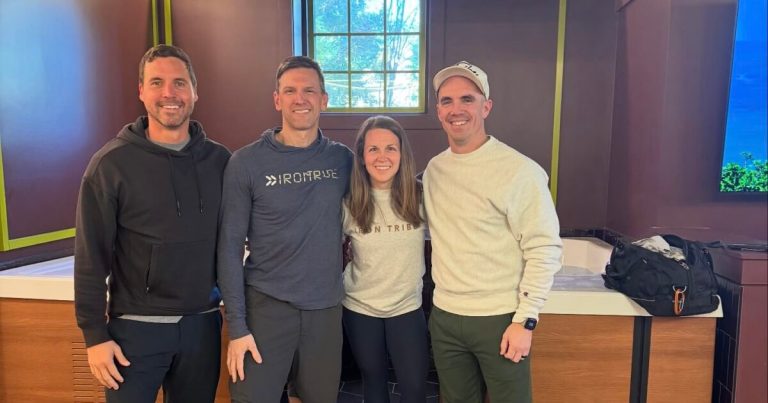Reviewed by: Patience Itson
The ‘Voice of Legion Field’ is a walking miracle—check out his heart story now
Reading time: 5 minutes
Sponsored

In 2021, Keith Mims’ family had his funeral programs printed. 95 days later, he emerged from the hospital as a walking miracle.
Keep reading for his story, along with expert advice from a Brookwood Baptist Health cardiothoracic surgeon on steps you can take to avoid ending up on the operating table.
Meet Keith Mims

If Keith Mims seems familiar, you may have heard him hosting his own sports show on Summit Media or announcing football games. For years, he announced at Legion Field and for the Alabama High School Athletic Association.
Then in 2019, he developed chest pains and started sweating and vomiting. He quickly called 911 and told the operator “I think I’m having a heart attack; I’ll leave the door open.”
That turned out to be the first of three major heart episodes. Doctors at Brookwood Baptist Medical Center treated the first two with heart catheterizations, but the third was a matter of life or death.
Open heart surgery at Brookwood Baptist Medical Center

This time, Mims’ doctors told him he’d have to have open heart surgery. Ultimately, Mims had a quadruple bypass followed by 65 days in the main hospital, plus another month of inpatient rehab.
Mims spent much of that time in the Cardiac Intensive Care Unit (CICU) at Brookwood Baptist Medical Center. While there, he lost about 40 pounds and couldn’t eat, sit up or use his body.
Once he was able to leave intensive care, his rehab involved learning to walk again with the help of a physical therapist.
“The care that I got at Brookwood was just incredible. Everyone had an overwhelming sense of pride in doing their job in a first-class way. I am so exceptionally grateful for them.”
Keith Mims
Now Mims walks two miles on the treadmill seven days a week and lifts weights three days a week, even though his heart only beats at 15% of capacity.
He considers himself lucky to be alive, thanks to the expert care he received.
Dr. Trent Howard’s top tips for heart health

After hearing Mr. Mims’ story and dealing with heart issues with a few people in my inner circle, I wanted to speak with a heart surgeon.
My main question: What can we all do to protect our hearts and hopefully keep from ending up on the operating table?
Fortunately, Dr. Trent Howard, a cardiothoracic surgeon at Shelby Baptist was kind enough to spend time answering my questions.
Here are his top tips:
1. Do the things we’ve been told all our lives will help us stay healthy

In case you need a refresher, these include:
- Control your blood sugar + pressure
- Don’t smoke—or quit smoking if you do
- Exercise
- Make healthy food choices
- Take your prescribed medications
2. Pay attention to new symptoms

Here are some examples of what not to ignore:
- Chest pain
- Feeling lightheaded or dizzy, like you are going to pass out
- Getting tired or fatigued—more than normal
- Palpitations
- Shortness of breath
- Swelling in your extremities
“All of those things could be symptoms of new heart artery problems, heart rhythm problems or even vascular disease.
If any of these symptoms are new or persistent, they should definitely be checked out by your primary care doctor or your cardiologist if you already have one.
They can start the process of EKGs, stress tests, heart catheterizations and so on.”
Dr. Trent Howard, cardiothoracic surgeon, Shelby Baptist
3. Know when to go to the ER

Sometimes you just need to go directly to the emergency room:
“If you’re experiencing new shortness of breath, new chest pain or passing out, you want to get to the emergency room right away.
Don’t spend time trying to get into your doctor or cardiologist because things need to be addressed immediately.
The ER can do a good job of sorting out what’s going on and what needs to happen.”
Dr. Trent Howard, cardiothoracic surgeon, Shelby Baptist
What to expect if you go to the ER with heart problems

In the ER, here’s what you can expect:
- An EKG to trace your heart rhythm
- Blood work to see if there’s injury to the heart muscle or if you’re in an ongoing heart attack
- Pulse oximeter to make sure you’re getting enough oxygen
- Chest X-Ray to rule out various issues
The results of these tests will help determine what’s going on and the treatment pathway.
Here are some of the main options:
- Hospital admission: for stress tests, heart catheterization or surgery
- Heart monitor: to determine if you have a heart rhythm problem
- Cardiologist or electrophysiologist (“heart electrician”): to poinpoint the problem and potential solutions
- Heart rhythm restoration / stroke prevention: to address a known heart rhythm problem
Protect your heart—it’s the only one you have

I don’t know about you, but after hearing Keith Mims’ story and getting Dr. Howard’s tips, I’m feeling pretty motivated to take some actions to protect my health.
“These are the things you can do to prevent winding up in the cardiologist’s office or in the operating room.”
Dr. Trent Howard, cardiothoracic surgeon, Shelby Baptist
Join a team that helps keep people alive. Brookwood Baptist Health is hiring.
Sponsored by:




